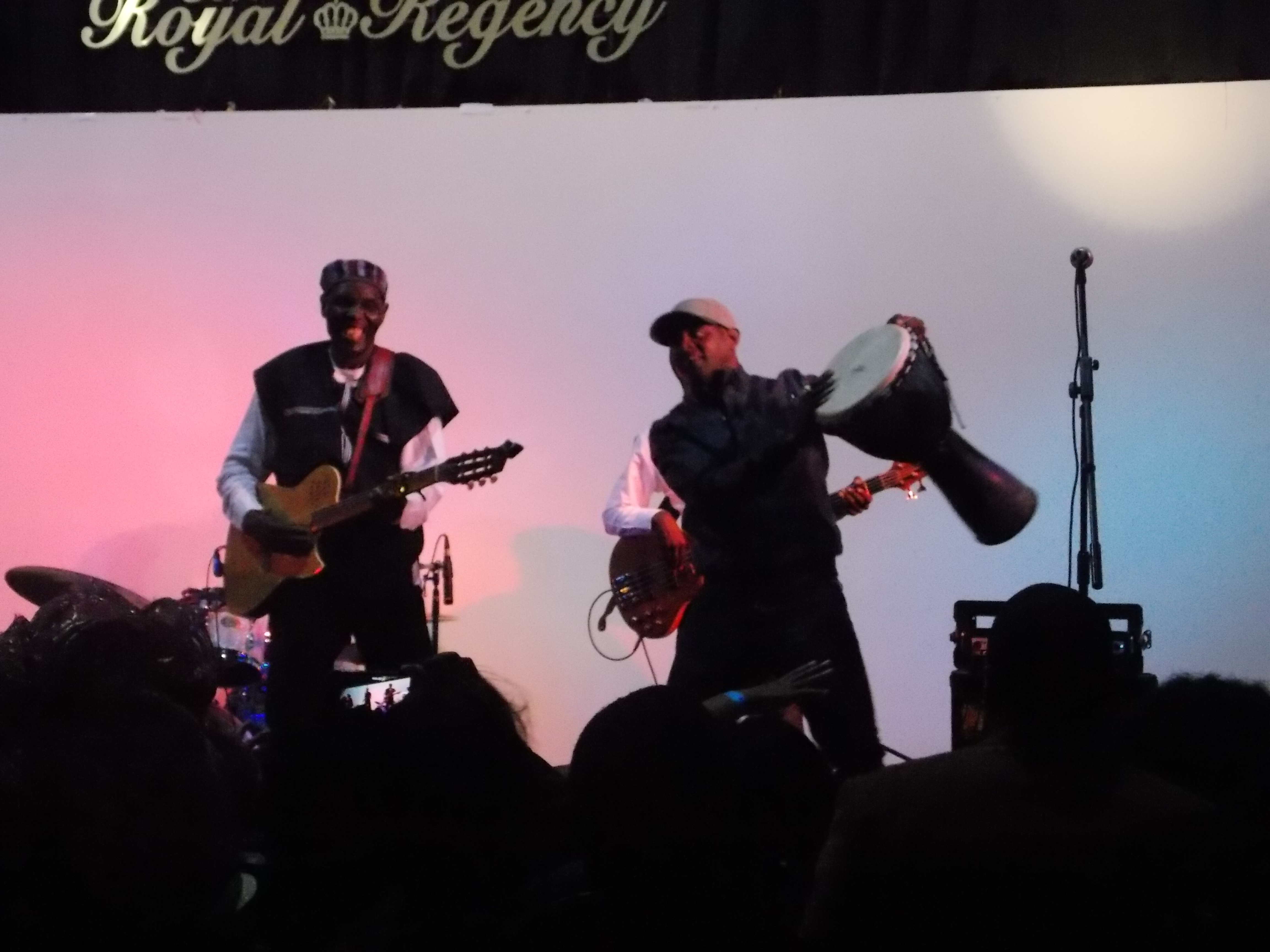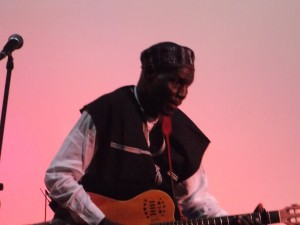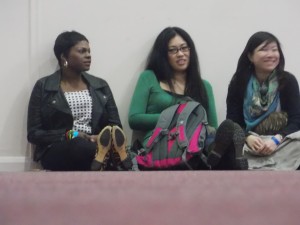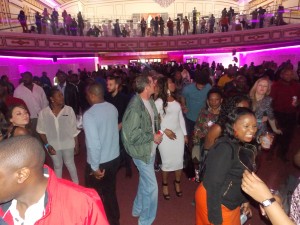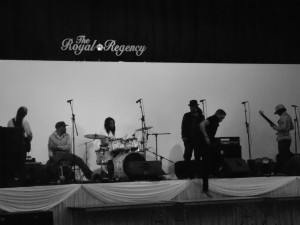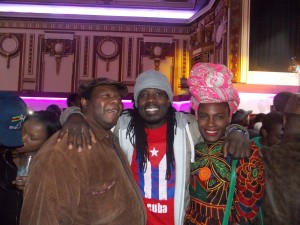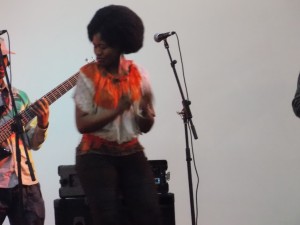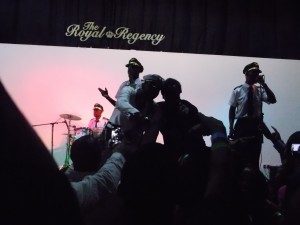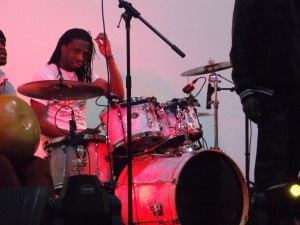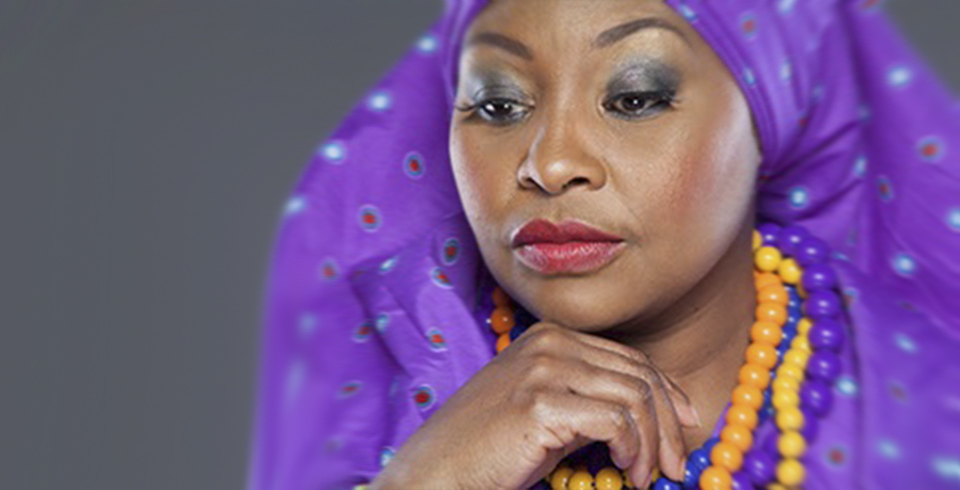This is now my life, this is what I do. I go where Zimbabweans go (when I feel it is safe to do so), and I follow where Zimbabwean music sounds. Friday the 21st of March 2014 sees me trekking towards The Greatest Hits Tour, where Oliver “Tuku” Mtukudzi and Sulumani Chimbetu, from Zimbabwe. are playing.
I arrive early at the venue of the event, Royal Regency Hotel, in Manor Park. The last time I saw Oliver Mtukudzi playing live was in 2008 in South Africa. I was with an Australian friend, and we were ushering in the new year to uncertainty, as I was not yet sure how long, or fruitful my stay in South Africa was going to be. So I am obviously filled with excitement and anticipation.
This time, I am alone, and the comforts of friends, though needed, are not present, and I am in a fairly predictable, I would like to think, environment. ( I try not to think about the said pathologies of blackness, or dying like Jimmy Mubenga). I have thought of Jimmy Mubenga because another performer on the night is Sulumani Chimbetu, son to legendary Simon “Chopper” Chimbetu, whose popular song Sean Timba, with the words batai munhu, is what death and deportation was to Mubenga.
It is a trait, I tend to digress. Tonight is going to be my first night watching Sulumani live, and I am, of other certainties I pray for, sure I do not want to see any batai munhu kinds of situations. I can assure you that by the end of the night, whilst we walk back and forth looking for where the car which is my lift home has been parked, there is shouting, pushing and shoving. The spirit of batai munhu would have caught on.
Arriving early is not such a good thing in such situations as I end up carrying tables around the venue, and following people aimlessly around asking for a press pass, which, by the end of the night, I still do not have. I am looking up at the big and bright chandeliers on the roof, and the white-cloth draped chairs and glittering things in the section that is VIP. We pay to feel important. Capital has no mercy. Fortunately, I get into conversation with two Japanese ladies, one of whom has flown that very morning all the way from Turkey just for Oliver Mtukudzi. She tells me her name is Shoko. In Shona (or what we call that) that can mean monkey, as a variant of soko/tsoko, or it can mean word/message (I am not a linguist, by the way!)
I don’t tell her about the monkey one. I express my surprise at her love for Oliver Mtukudzi, and she expresses her love for the music, and asks what one of his songs which says “tumirai shoko” means. After carrying tables and getting frustrated for a pass, passing for a translator does not seem such a bad thing: all this before the gig.
The stage is set, and Heritage Survival warm the stage, or as one of the band members puts it, they are chasing away the cold of the UK from the stage, so the two Zimbabwean artists can find it warm enough. A Zambian guy, dapper, who has been telling me about the importance of self-esteem as a black man, says to me “They sound like Thomas Mapfumo”. I nod. I am actually looking at the female vocalist, at the gap between her two front teeth. I have heard it is a sign of beauty, and much more.
When Oliver Mtukudzi comes on stage, there seems to be a gap. It is unlike the beauty of the woman’s gap. I just feel like there is a vacuum, but he does give a sterling performance, with people joining him in song, especially when he belts out Tozeza Baba. At his age he still prances around the stage. I get exhausted just sitting on the tube! I bump into Shingai Shoniwa, and I remember why I love doing this work, and researching on Zimbabweans and music. I get to carry tables, translate for Japanese women, and meet amazing people, like Shingai Shoniwa. Generations of Zimbabwean music present in this one space. Oliver Mtukudzi, Heritage Survival, Sulumani Chimbetu, Shingai Shoniwa. The richness is evident, to me at least.
As one of the best artists to ever come out of Zimbabwe, one can see the love and respect Oliver Mtukudzi commands.Phones and I-pads are out as people capture the antics of this great musician, and I catch, from the corner of my eye, this one couple that is grinding on each other like it is Hold Yuh from Gyptian. Who knew Tuku could elicit such gyrations!
That gap I felt seems closed when Sulumani joins Tuku on stage, and there is a vibrancy, an energy, that I was not feeling before. A duet of young and old, in some ways a performance of the sun rising and the sun setting, simultaneous manifestations of the continuum of life and creative energy, that have defied time, and place, and traveled across seas and borders. Who will deport music, put it in detention, or unleash the spirit of batai munhu upon it?
The attire that Sulumani comes with on stage is interesting. I am not sure if they are dressed like pilots, or members of the airforce, which might also be pilots, or the navy. It is some uniform, and Sulumani has this white and shiny jacket on. His set continues with that energy that he brought when Tuku was on stage, and he belts out his father’s songs. In one song, he likens himself to his father, saying “Sulu wacho ndiye chopper”, as he touches his ears, his nose, points to his shoes, his belt, all to say he indeed is a reincarnation of “Chopper”. I find it a bit narcissistic, but well, he does resemble, and has carried the legacy of, his father.
All of a sudden there is dispersal, the volume is turned down, and Sulumani does not get the chance to say goodbye, or do the ritual of the last song. I did not even see where the whole night went, that is how good the music is. It is already morning on a Saturday, and people mill around, supposedly talking about the show, catching up with friends, or maybe searching, for something. Isn’t it the tragedy of being, that we are always searching, for something?
It is during this dispersal, of this Zimbabwean diaspora, that the spirit of batai munhu rears its head. There is shouting and shoving, people are pushed against walls, and we watch, and wonder, where is that car parked? There are worse things on a Saturday morning, and we will not let this spirit mar a night that was filled with table carrying, translations, timeless songs, and tiredness in the end!

